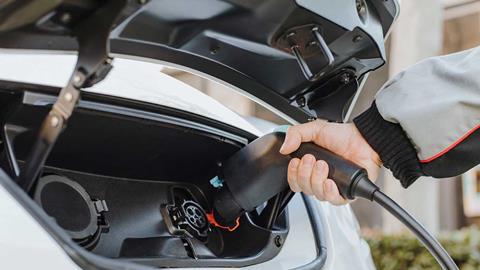Transport decarbonisation is at the epicentre of the UK’s ambitions to hit net zero targets.
With UK fleets facing considerable economic headwinds, from inflation to rising interest rates, cost control has become their number one priority. And research from Bridgestone and Webfleet has found that this focus is now delaying their decarbonisation efforts.
According to a study, conducted among 210 fleet decision-makers, more than three-quarters of operators (76 per cent) believe cost pressures are proving a barrier to green initiatives, despite the sustainability call to action growing ever louder. A further 78 per cent said cost pressures were delaying plans for technology adoption.
Cutting capital spend has long been the go-to survival strategy for businesses as rising costs hit their bottom lines.
But when it comes to decarbonisation and digital transformation, it can be a case of kicking the can down the road. What’s more, by deferring expenditure and adopting a short-term approach to cost-control in these areas, longer-term profitability risks being compromised.
A symbiotic relationship
Financial and sustainability business objectives should not be viewed as mutually exclusive.
Effective vehicle maintenance and smoother driving inputs, for example, are integral to reductions in fuel spend. At the same time, they are equally important for reducing associated carbon emissions.
Similarly, transitioning to electric fleet vehicles (EVs) can not only contribute to saving the planet, with careful planning and management information the move can boost the business bottom line.
Telematics insights
Data intelligence can prove the catalyst for greener and more cost-effective operations.
By focusing on how vehicles are used, improvements in both sustainability and cost control can be delivered no matter the size, nature and make-up of a fleet.
Drivers remain the biggest factor in fuel savings, accounting for around a third of the total cost of ownership (TCO) of a vehicle, and measurement of mpg underpins the potential savings that can be achieved. Other crucial areas for measurement include vehicle idling, speeding and incidences of poor driving style, such as harsh steering or braking.
Advanced telematics solutions, such as Webfleet, deliver such performance insights in real time, enabling fleet managers to introduce evidence-based improvement programmes. At the same time, they can provide in-vehicle coaching to drivers, empowering them to make meaningful changes behind the wheel.
Smart job allocation and scheduling, which once again calls for accurate management information, can also have a notable impact on mileage costs and carbon footprint.
Using EV solutions, fleet managers can access information on real time battery levels, remaining driving ranges and energy usage, alongside insights into charging processes and vehicle charge levels. Furthermore, the best routes for electric vehicles are to be calculated, taking into account vehicle battery levels, capacity, energy consumption and charge point locations.
Action stations
Fleets have acknowledged the dangers of falling foul of short-termism, with more than three-quarters (78%) admitting that pressures to cut costs this year will negatively impact longer-term cost-reduction.
But it should be remembered that this need not be the case. With appropriate digital solutions, they can deliver on their immediate cost control targets whilst also securing a greener and more profitable future.
Beverley Wise, Webfleet Regional Director for Bridgestone Mobility Solutions











